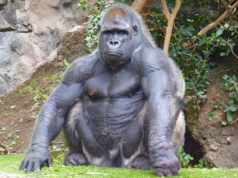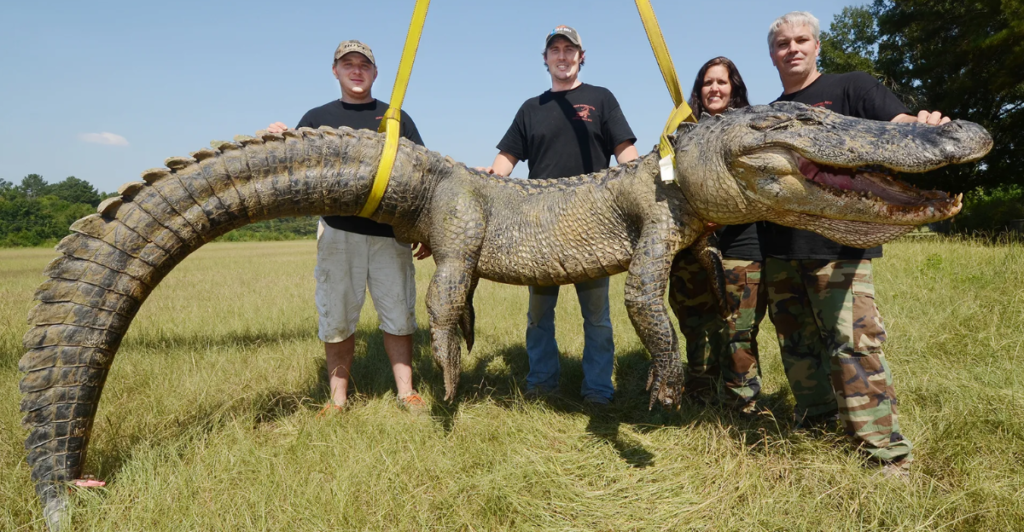
The mighty Mississippi River stretches over 2,300 miles, carving its way through ten states before meeting the Gulf of Mexico. With its vast wetlands, winding channels, and murky waters, this river is a thriving habitat for countless species—including one of North America’s most formidable reptiles: the alligator. But just how dangerous are these powerful predators? Where do they hide, how do they hunt, and should swimmers, boaters, or fishermen be concerned? Here’s what you need to know about alligators in the Mississippi River.
How Dangerous Are Mississippi River Alligators to Humans?
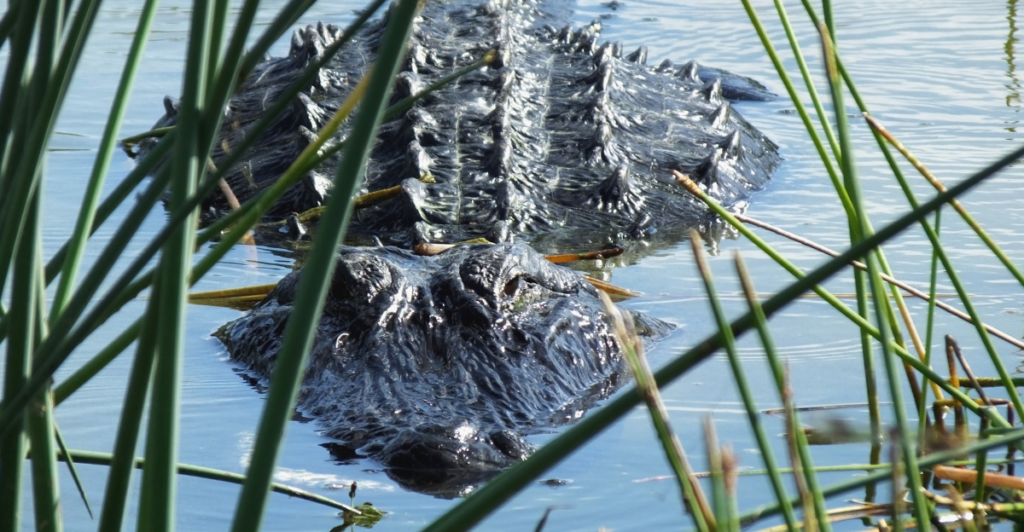
Alligators thrive in the Mississippi River, especially in the south. While they can be dangerous, attacks on humans are rare. Most alligators stay away from humans unless provoked or fed. To reduce risks, stay alert, keep a safe distance, and avoid swimming at night.
Are Alligator Attacks in the Mississippi River Common?
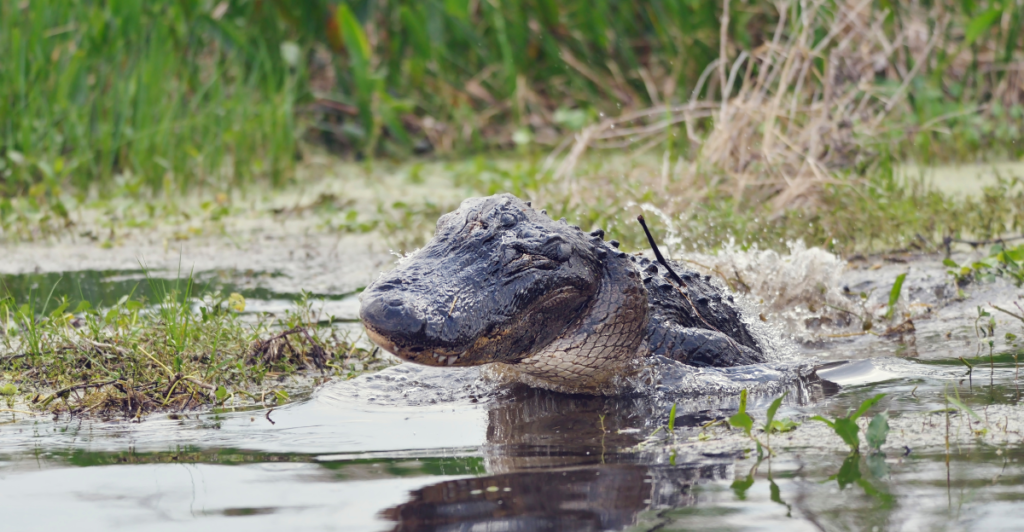
Alligator attacks in the Mississippi River are very rare. In the past decade, only one non-fatal incident has been reported in Mississippi. In 2022, A teenage boy was attacked by a four-foot alligator while swimming in a creek, but he did not suffer any serious injuries.
Do Alligators Attack Boats and Swimmers?
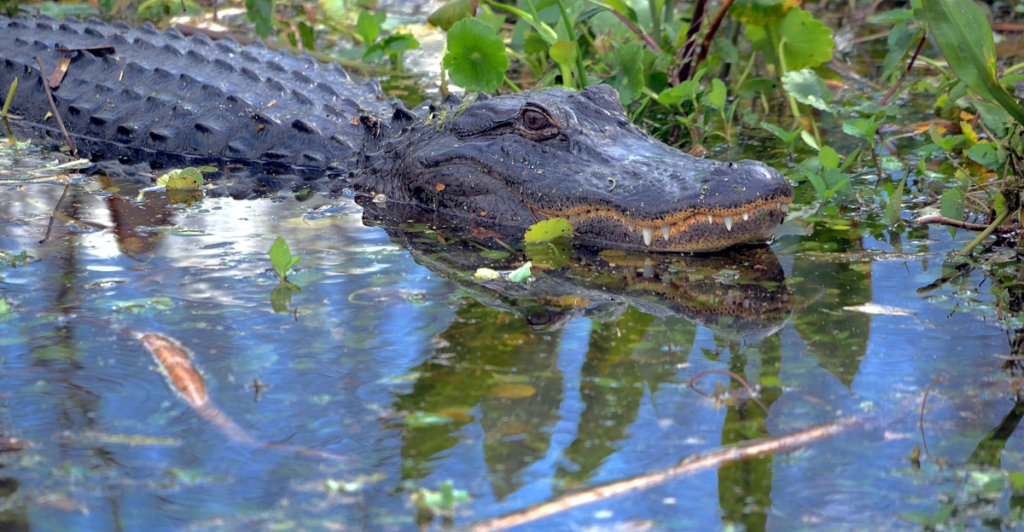
Alligators rarely attack boats or swimmers unless provoked. They typically avoid human activity but may show aggression if they feel threatened, especially during nesting season. Female alligators can be territorial near their nests, increasing the risk of defensive behavior. It’s best to keep a safe distance and avoid alligator habitats during breeding season as this helps minimize encounters.
Do Alligators Pose a Threat to Fishermen?
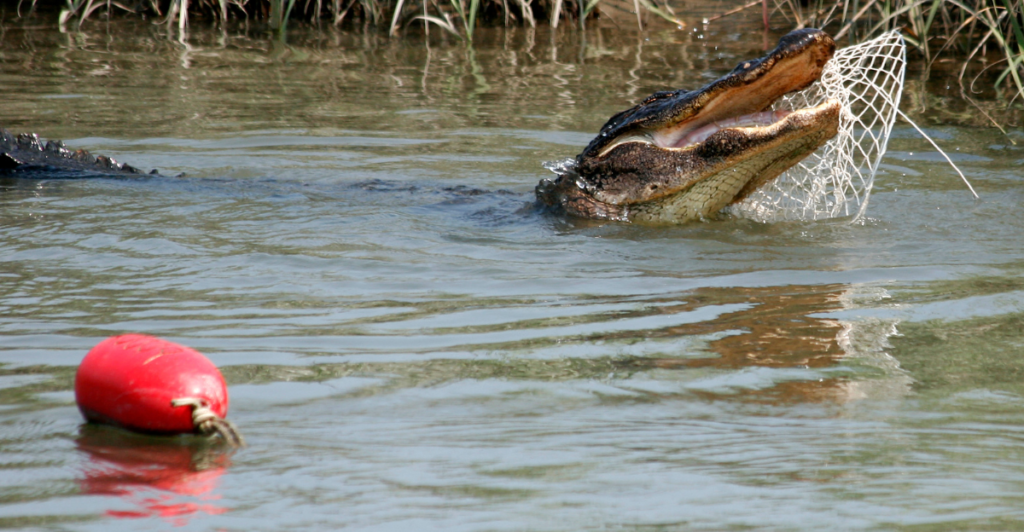
Alligator attacks on fishermen are uncommon; however, there is a potential risk if they are provoked. To minimize this threat, fishermen should be cautious and avoid activities that could disturb alligators, such as fishing near their nests or feeding them, particularly at night when alligators are more active.
How Many Alligators Are Possible There In The Mississippi?
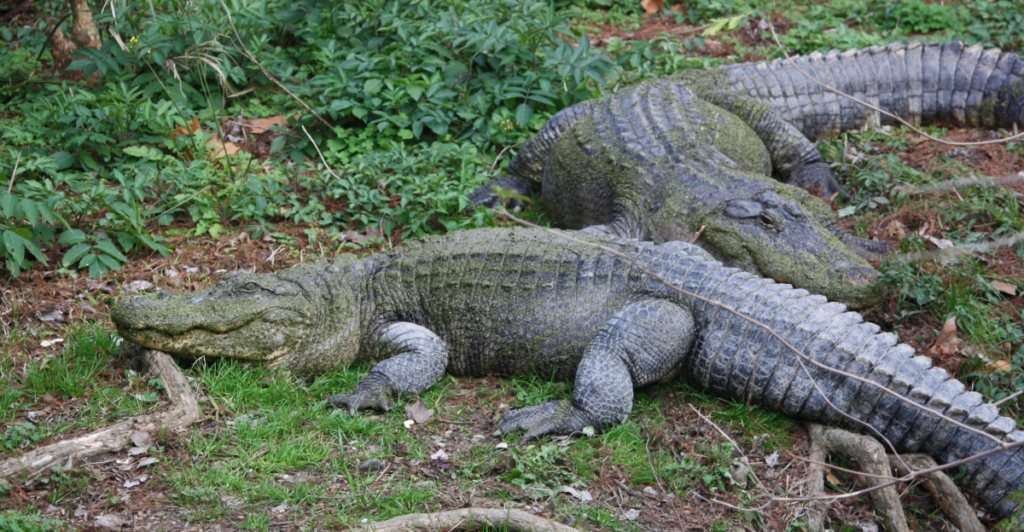
Mississippi is home to an estimated 32,000 to 38,000 alligators, known for their impressive size. These reptiles are generally larger than those found in Florida or Louisiana, often growing to more than 10 feet in length.
How Alligators Hunt in the River’s Murky Waters
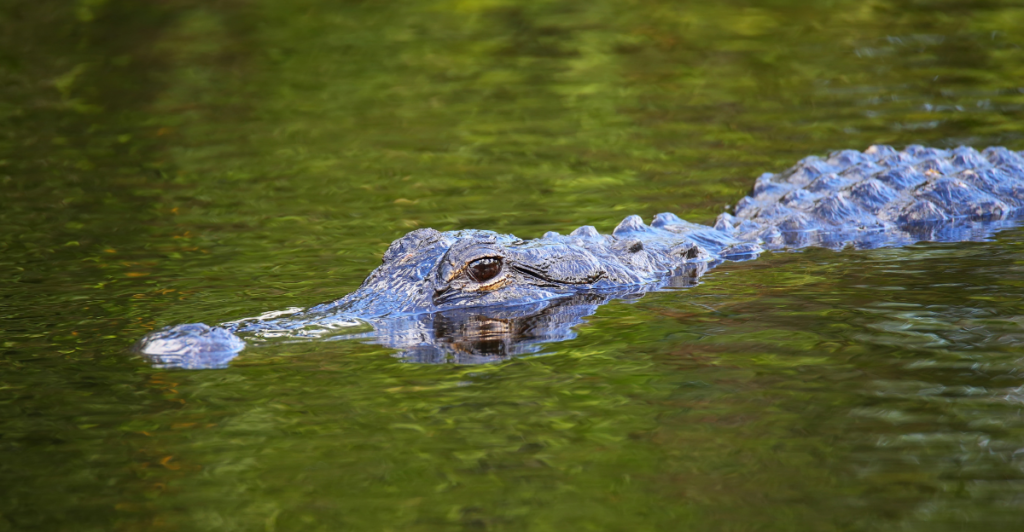
Alligators are skilled hunters in the murky waters of the Mississippi River. They cleverly camouflage themselves by lying just beneath the surface, patiently waiting for the right moment to strike. With their powerful jaws and impressive swimming speed, they can swiftly ambush unsuspecting prey. These apex predators rely on their excellent night vision, making them even more dangerous after dark.
What Is the Average Lifespan Of An Alligator In The Mississippi
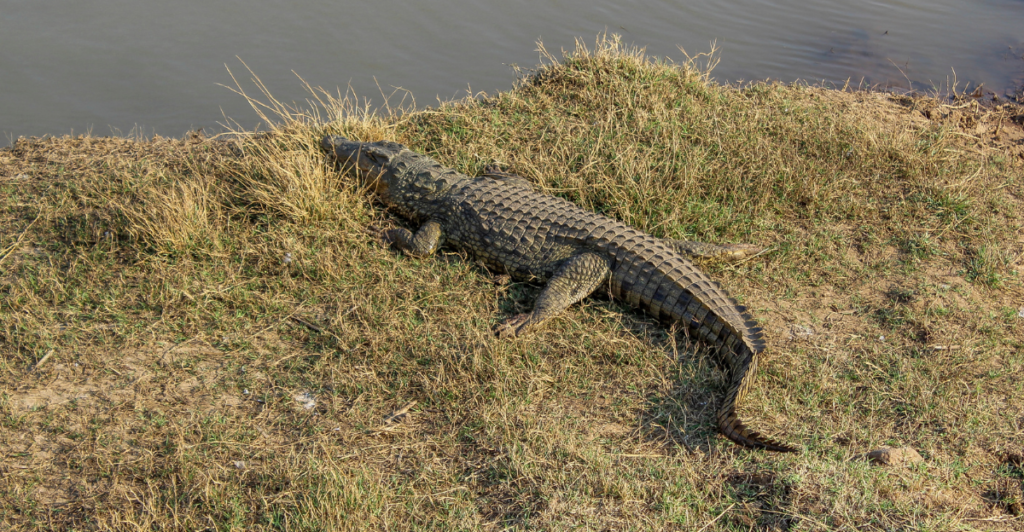
Alligators in the Mississippi River usually live between 30 and 50 years. In captivity, they can live up to 70 years. In perfect conditions, with plenty of food and fewer dangers, some alligators can live over 80 years. This shows that they can have long lives in their natural habitat.
Can You Outrun an Alligator? The Truth About Their Speed
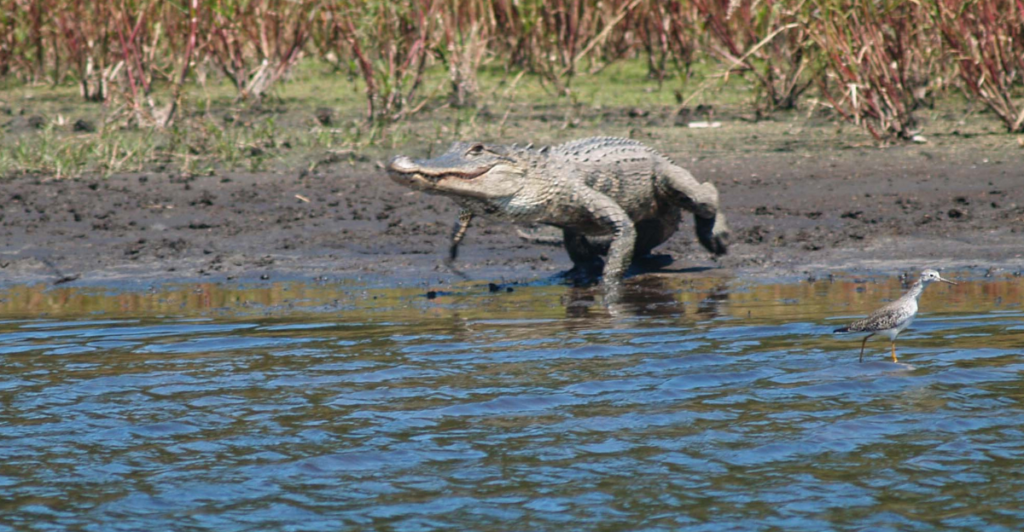
Alligators can run fast, up to 35 mph, but you can outrun them. They are large and not built for long-distance running on land. If you ever face a gator, run in a straight line. Forget the advice of running in a zigzag; that is a myth and will waste your time and increase your risk. Alligators lack endurance, so a straight sprint will help you create distance quickly.
How Alligators Survive the Mississippi’s Harsh Winters
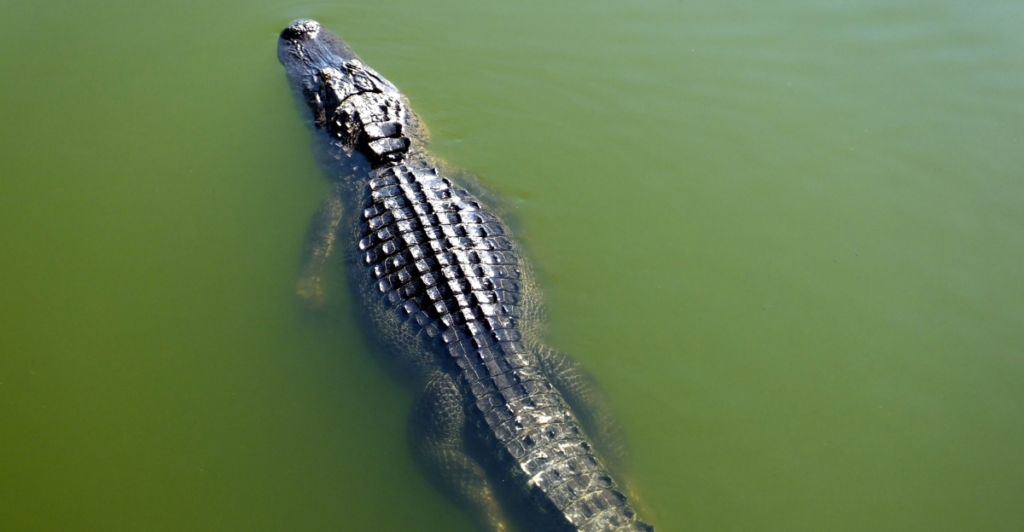
Alligators handle Mississippi’s cold winters by entering brumation, a lighter version of hibernation, where they conserve energy. When temperatures drop, they practice snorkeling, breathing above the ice while staying submerged, or engage in icing, keeping only their nostrils exposed. These unique survival tactics help them endure even the harshest winter conditions.
The Role of Alligators in the Mississippi’s Ecosystem
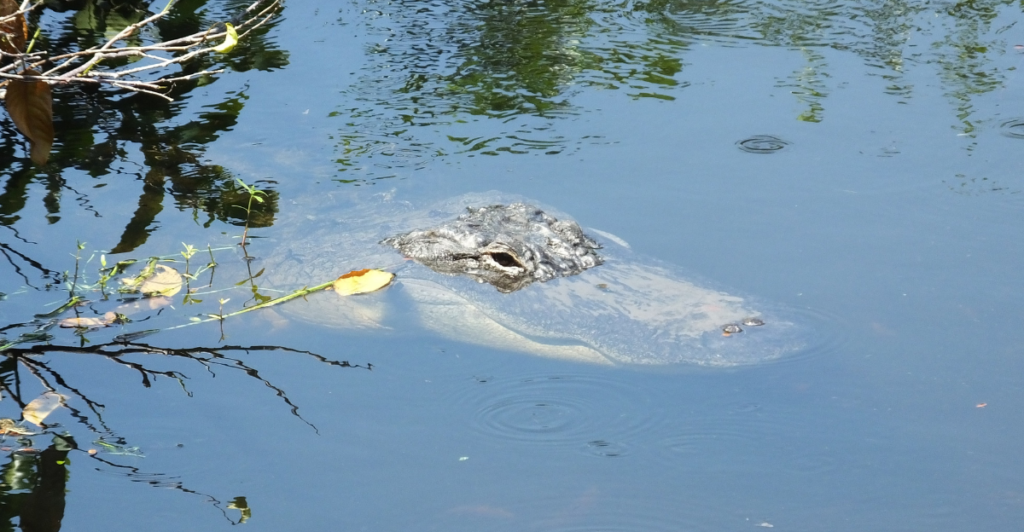
Alligators are important for the Mississippi ecosystem. As apex predators, they help control the populations of other animals, including invasive species like nutria, which can harm habitats. They also dig gator holes that provide homes for various wildlife, support nutrient cycling, and change habitats.
What’s the Difference Between Alligators and Crocodiles?
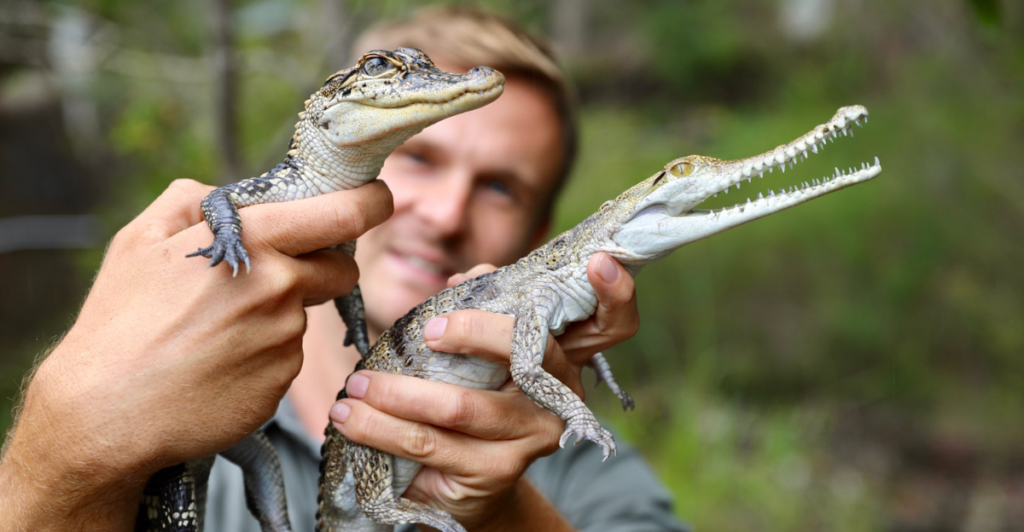
Alligators have a U-shaped snout and dark skin. They prefer freshwater. Crocodiles have a V-shaped snout and lighter skin. They can live in both freshwater and saltwater. Crocodiles are more aggressive, larger, and live longer than alligators. When alligators close their mouths, their teeth are hidden. In contrast, crocodiles show their teeth even when their mouths are closed.
How to Stay Safe in Alligator Territory
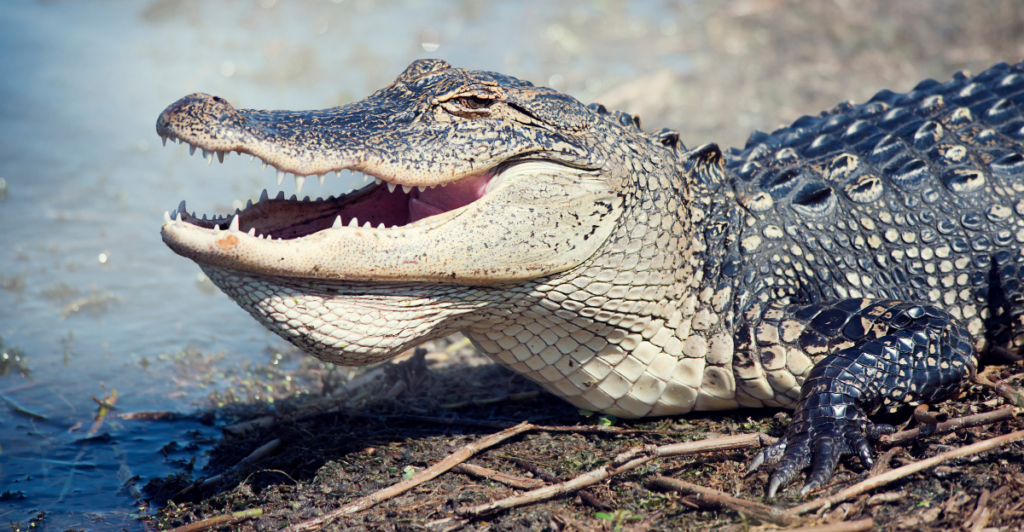
In alligator territory, maintain a safe distance of 30-60 feet. Avoid swimming during dawn or dusk when alligators are most active. Never feed them, as it can cause aggression. Keep pets and children away from the water’s edge, and stay alert, as alligators may be nearby even if not visible. Always respect their space.
Discover more of our trending stories and follow us to keep them appearing in your feed

Lake Shasta’s Remarkable Comeback From Drought Captured in Stunning Images
Largest U.S. Dam Removal Sparks Giant Salmon Revival
The War on Cows Is Over—And Green Extremists Have Lost
There Will Be Eruptions”: Concerns Mount as Yellowstone Supervolcano Activity Shifts
References:
Reference 1
Reference 2
This article first appeared here
Stay connected with us for more stories like this! Follow us to get the latest updates or hit the Follow button at the top of this article, and let us know what you think by leaving your feedback below. We’d love to hear from you!




